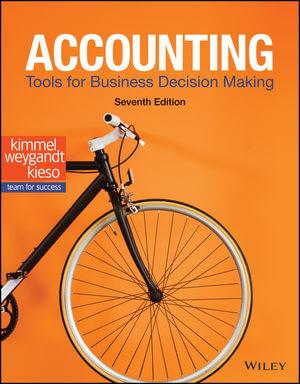Question
1) The following data (in thousands of dollars) have been taken from the accounting records of Larner Corporation for the year just completed: Sales- $870
1) The following data (in thousands of dollars) have been taken from the accounting records of Larner Corporation for the year just completed:
Sales- $870
Purchases of raw materials*- $110
Direct labour - $130
Manufacturing overhead - $200
Administrative expenses - $160
Selling expenses - $140
Raw materials inventory, beginning* - $30
Raw materials inventory, ending* - $60
Work in process inventory, beginning - $50
Work in process inventory, ending - $10
Finished goods inventory, beginning - $150
Finished goods inventory, ending - $140
(a.) Make a schedule of cost of goods manufactured in good form.
2) Mike Company has provided the following data
This Year Last Year
Units Sold 400,000 $350,000
Sales Revenue $1,300,000 $1,050,000
Less: Cost of Goods Sold 910,000 735,000
Gross Margin 390,000 315,000
Less: Operating Expenses 272,000 260,000
Operating Income $118,000 $55,000
What is the best estimate of the company's variable operating expense per unit?
What is the best estimate of the company's total fixed operating expense per year?
3)The following is Alsatia Corporation's contribution format income statement for last month:
Sales $1,400,000
Less: variable expenses 900,000
Contribution margin 500,000
Less: fixed expenses 300,000
Operating income $200,000
The company has no beginning or ending inventories and produced and sold 10,000 units during the month.
Required:
a) What is the company's contribution margin ratio? -
b) What is the company's break-even in units? -
c) If sales increase by 100 units, by how much should operating income increase? -
d) How many units would the company have to sell to attain target operating income of $225,000?
e) What is the company's margin of safety in dollars?
f) What is the company's degree of operating leverage?
4) Bakerston Company is a manufacturing firm that uses job-order costing. The company's inventory balances at the beginning and end of the year were as follows:
Balance Beginning Balance Ending Balance
Raw materials $14,000 $22,000
Work in process 27,000 9,000
Finished goods 62,000 77,000
The company applies overhead to jobs using a predetermined overhead rate based on machine hours. At the beginning of the year, the company estimated that it would work 33,000 machine hours and incur $231,000 in manufacturing overhead cost. The following transactions were recorded for the year:
a.) Raw materials purchased: $315,000.
b.) Raw materials requisitioned for use in production: $307,000 ($281,000 direct and $26,000 indirect).
c.) The following employee costs were incurred:
Direct labour: $377,000
Indirect labour: $96,000
Administrative salaries: $172,000
d.) Selling costs: $147,000.
e.) Factory utility costs: $10,000.
f.) Depreciation for the year: $127,000, of which $120,000 is related to factory operations and $7,000 is related to selling and administrative activities.
g.) Manufacturing overhead was applied to jobs. The actual level of activity for the year was 34,000 machine hours.
h.) Sales for the year: $1,253,000.
Required: Prepare the journal entries for the above transactions
I want its answer within an hour please.
Step by Step Solution
There are 3 Steps involved in it
Step: 1

Get Instant Access to Expert-Tailored Solutions
See step-by-step solutions with expert insights and AI powered tools for academic success
Step: 2

Step: 3

Ace Your Homework with AI
Get the answers you need in no time with our AI-driven, step-by-step assistance
Get Started


